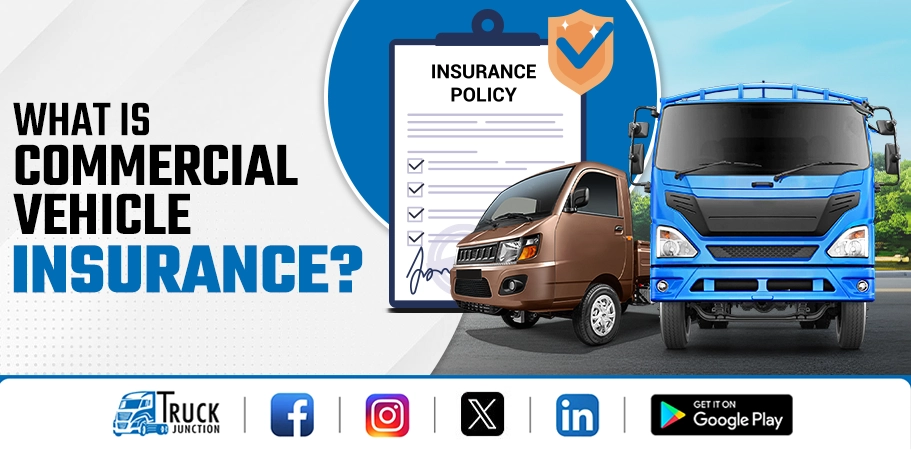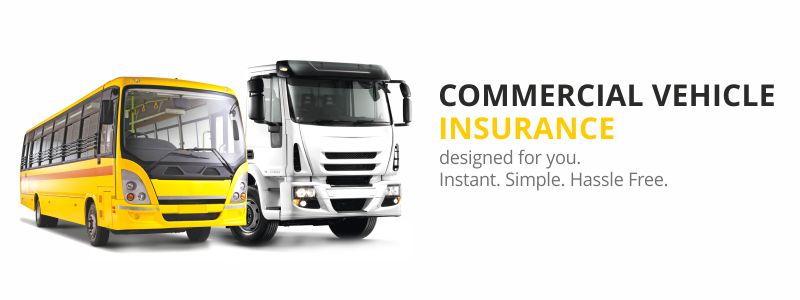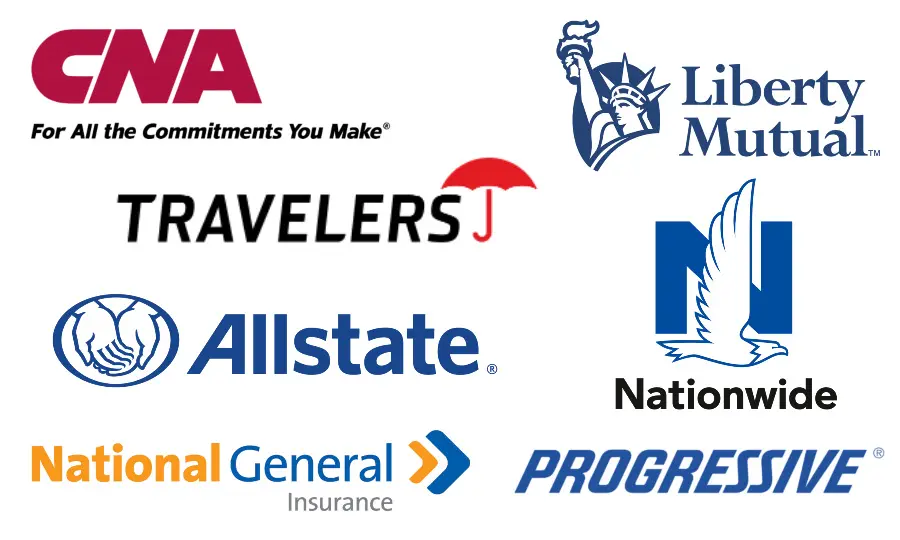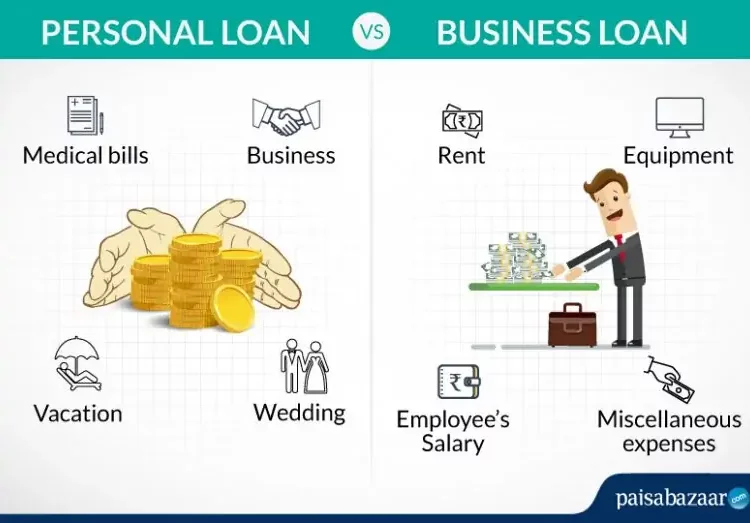The importance of commercial auto insurance cannot be underestimated, especially for businesses that require the use of vehicles to operate. Whether you have a small business or a large corporation, having the right commercial auto insurance policy in place is crucial to protect your business from potential financial losses.
Toc
Introduction to Commercial Auto Insurance

Commercial auto insurance is a type of insurance specifically designed for vehicles used for business purposes. This can include cars, trucks, vans, and other types of vehicles that are owned or leased by a business. It provides coverage for physical damage to the vehicle as well as liability coverage for any accidents or injuries caused by the vehicle.
Importance of Commercial Auto Insurance
Commercial auto insurance provides coverage for vehicles used primarily for business purposes, safeguarding against risks associated with accidents, theft, and liability. Unlike personal auto insurance, this type of policy is tailored to meet the unique needs of businesses, addressing factors such as the number of vehicles, the types of operations conducted, and the specific risks involved. For instance, a delivery service may require broader coverage due to the frequency of road use and the nature of transporting goods. By investing in a suitable commercial auto insurance policy, businesses can mitigate financial impacts from unforeseen events and ensure continuity of operations, giving peace of mind to both business owners and employees alike.
What Commercial Auto Insurance Covers
Commercial auto insurance provides coverage for vehicles used in the course of business. This includes protection against physical damage, theft, and various liabilities. Whether you own a fleet of delivery vans or use a single car for business errands, commercial auto insurance ensures that your vehicles are covered.
Legal Requirements for Commercial Vehicles
It’s not just about protection—complying with legal requirements is vital. Depending on your location and the nature of your business, commercial vehicles must meet specific insurance criteria. Failure to comply can result in fines, penalties, or even suspension of your business operations. It’s best to consult with your insurance provider or a legal advisor to ensure that you comply with all necessary regulations.
Key Benefits of Commercial Auto Insurance

As a business owner, you may be wondering if commercial auto insurance is worth the investment. Here are some essential benefits that make it an essential part of your overall business strategy:
Protection against Financial Losses
One of the primary advantages of commercial auto insurance is its ability to mitigate financial losses resulting from accidents and incidents involving your vehicles. In the event of an accident, your policy can cover the costs associated with repairs, vehicle replacement, and medical expenses for injuries sustained by employees or third parties. This protection is essential as it shields your business from potentially devastating financial repercussions. Furthermore, having a reliable insurance policy can enhance your credibility with clients and partners, demonstrating your commitment to responsible business practices and risk management.
Coverage for Business Interruptions
Commercial auto insurance can also provide coverage for business interruptions due to vehicle-related incidents. For example, if your primary delivery vehicle is involved in an accident and is out of commission for a period, your policy may cover the costs associated with renting a temporary replacement or lost income due to delayed deliveries. This coverage can help minimize disruptions to your operations and maintain customer satisfaction.
Protection against Liabilities
Businesses that rely on vehicles face various liabilities, such as property damage or personal injuries caused by their drivers. Commercial auto insurance provides liability coverage, protecting your business from legal claims and lawsuits in these situations. Without proper coverage, your business could face significant financial losses or even closure in the worst-case scenario.
Choosing the Right Commercial Auto Insurance Policy

When it comes to selecting a commercial auto insurance policy, there are a few key factors to consider:
Liability Limits
Determining the appropriate liability limits for your commercial auto insurance policy is crucial to ensure adequate protection. Liability limits represent the maximum amount your insurer will pay for damages in the event of an accident where you are at fault. It’s important to assess your business operations and potential risks involved to choose limits that reflect your needs. Many experts recommend opting for higher limits than the minimum required by law, as this can provide an additional safety net against high legal costs and settlements.
Coverage Options
In addition to liability coverage, commercial auto insurance policies often offer various coverage options that can be tailored to your specific needs. These options may include collision coverage, which pays for damage to your vehicle resulting from a collision, and comprehensive coverage, which protects against theft, vandalism, or natural disasters. Assessing your fleet’s usage and potential risks can help you determine which options are necessary to ensure comprehensive protection for your business vehicles.
Discounts and Savings
Many insurance providers offer discounts that can help reduce your premium costs. Factors such as having a clean driving record, bundling policies, or completing safety training for your drivers may qualify you for significant savings. It’s advisable to discuss these opportunities with your insurance agent to fully understand how you can maximise your savings while obtaining the necessary coverage for your business.
Regular Policy Evaluation
Lastly, as your business grows or changes, it’s essential to regularly evaluate your commercial auto insurance policy. Changes in your vehicle inventory, expansion into new markets, or shifts in your operations may necessitate adjustments to your coverage. Regularly reviewing your policy—ideally on an annual basis—ensures that you maintain the appropriate level of protection and helps mitigate any gaps in your coverage. Staying proactive not only guards against risks but also reinforces your commitment to the overall safety and success of your business operations.
Exploring Additional Coverage Options

Depending on your industry and the nature of your business, you may also want to consider additional insurance coverage beyond commercial auto insurance. Below are some common examples:
Commercial Property Insurance
Commercial property insurance is an essential consideration for businesses that own or lease physical locations or equipment. This type of policy protects your business assets from various risks, such as theft, fire, vandalism, and natural disasters. For businesses with significant physical investments like warehouses, office spaces, or retail locations, having adequate commercial property insurance ensures that you can recover quickly and minimize financial disruptions caused by unforeseen events.
When choosing a commercial property insurance policy, it is crucial to evaluate the specific risks associated with your location and industry. Policies can be customized to cover not only the physical building but also equipment, inventory, and any business personal property. Additionally, consider seeking endorsements or riders for specialized coverage needs, such as business interruption insurance, which can help cover lost income during the recovery period following a covered loss. By taking these proactive steps, you safeguard your business against significant financial exposure and enhance overall operational resilience.
Professional Liability Insurance
Professional liability insurance, also known as errors and omissions insurance, protects businesses that provide services or advice to clients. It covers legal defense costs, settlements, and judgments if a client alleges that your business caused them financial loss due to negligence or errors in the services you provided. This type of coverage is particularly critical for businesses such as consulting firms, accounting firms, or healthcare providers where even minor mistakes can result in costly lawsuits. Having professional liability insurance can give your clients peace of mind when working with your business, knowing that you have the means to remediate any potential errors.
Factors Affecting Premiums
The cost of a commercial auto insurance policy depends on various factors. These include the type and size of your business, the number of vehicles insured, their usage, and the driving records of your employees.
Type of Business and Vehicles
The nature of your business plays a significant role in determining your commercial auto insurance premiums. Different industries have varying levels of risk associated with vehicle operations. For instance, a delivery service may experience higher premiums compared to a landscaping business due to the frequency and urgency of road usage. Additionally, the types of vehicles in your fleet—ranging from cargo vans to heavy trucks—also influence costs, as larger and more valuable vehicles will typically incur higher premiums. Understanding these factors can help you better manage your insurance expenses and choose appropriate coverage that aligns with your business operations.
Driver History
The driving records of your employees can substantially impact your insurance premiums. Insurers assess the history of each driver to gauge risk levels; those with clean records usually receive lower rates, while drivers with past accidents or violations may lead to increased costs. Maintaining a comprehensive training program and establishing safe driving practices can contribute to a cleaner driving record, which can ultimately result in lower premiums. Regularly reviewing employee driving habits and addressing any concerns can not only enhance safety but also manage insurance costs effectively.
Coverage Limits and Deductibles
Moreover, the coverage limits you choose and the deductibles you set can greatly affect your policy’s premium. Higher liability limits or lower deductibles typically result in increased premiums, whereas opting for higher deductibles can lower costs—but this may also mean higher out-of-pocket expenses in the event of a claim. Balancing the need for robust coverage with cost considerations is essential to ensure you’re adequately protected without overextending financially. Consulting with an insurance professional can provide valuable insights tailored to your specific business situation.
Claims History
Lastly, your business’s claims history is another critical factor influencing insurance costs. A track record of frequent claims can signal higher risk to insurers, prompting them to raise premiums. To mitigate this, focus on risk management and loss prevention strategies that can help reduce the likelihood of accidents or damages. By promoting a culture of safety and actively managing potential risks, businesses can not only protect their assets but also improve their prospects for more favorable insurance rates in the future. Regular training and encouragement for safe driving are effective steps to minimize claims and maintain a positive claims history.
Top Commercial Auto Insurance Quotes in US 2024

As businesses navigate the complexities of securing commercial auto insurance, it’s essential to explore various quotes to find the most suitable coverage for your needs. The following are some of the top providers known for competitive rates and comprehensive coverage options in 2024:
1. Progressive
Progressive is renowned for its customizable commercial auto insurance policies, offering a range of options from liability to full coverage. Their user-friendly online tools allow businesses to compare quotes easily, ensuring transparency and competitive pricing. Additionally, Progressive provides discounts for safety features and bundling policies, making it a popular choice for small to medium-sized enterprises.
2. Geico
Geico is another leading option, particularly well-regarded for its competitive rates and responsive customer service. With access to a broad range of coverage options, clients can tailor their policies to meet specific business needs. Geico’s extensive network of agents ensures that customers receive individualized attention while navigating their insurance choices.
3. State Farm
State Farm’s commercial auto insurance stands out for its strong local agent network, offering personalized consultations. Their policies often include unique benefits, such as vanishing deductibles and accident forgiveness, which can be advantageous for businesses focused on long-term insurance relationships. State Farm also emphasizes its commitment to the business community, providing access to tailored resources and support.
4. Farmers Insurance
Farmers Insurance provides flexible commercial auto policies with an array of coverage options tailored to different industries. Their focus on personalized customer relationships, combined with extensive claims support, facilitates a smoother experience for policyholders. Farmers also offers unique add-ons that cater to niche business needs, ensuring comprehensive protection.
5. Allstate
Allstate’s commercial auto insurance aims to provide peace of mind with customizable coverage options and robust customer support. They emphasize safety features and offer various discounts that can lead to significant savings for responsible businesses. Allstate’s commitment to claims satisfaction is highlighted in their extensive customer service resources aimed to assist during the claims process.
When comparing quotes, consider factors such as coverage limits, deductibles, and potential discounts to determine the best fit for your business. Taking the time to thoroughly research and understand each option can lead to better financial protection and peace of mind as you operate your commercial vehicles.
Conclusion
In summary, securing the right commercial auto insurance is a crucial aspect of protecting your business and its assets. By understanding the factors that influence premiums, such as driver history, coverage limits, and claims history, businesses can make informed decisions that align with their operational needs and financial capabilities. Comparing quotes from leading providers like Progressive, Geico, State Farm, Farmers Insurance, and Allstate can unveil opportunities for competitive pricing and tailored coverage. Ultimately, investing the time to evaluate different options not only enhances your insurance strategy but also fosters a safer working environment, ensuring that your business can navigate challenges with confidence. By prioritizing safety and engaging in proactive risk management, you can promote a culture of responsibility that benefits both your employees and your bottom line.











